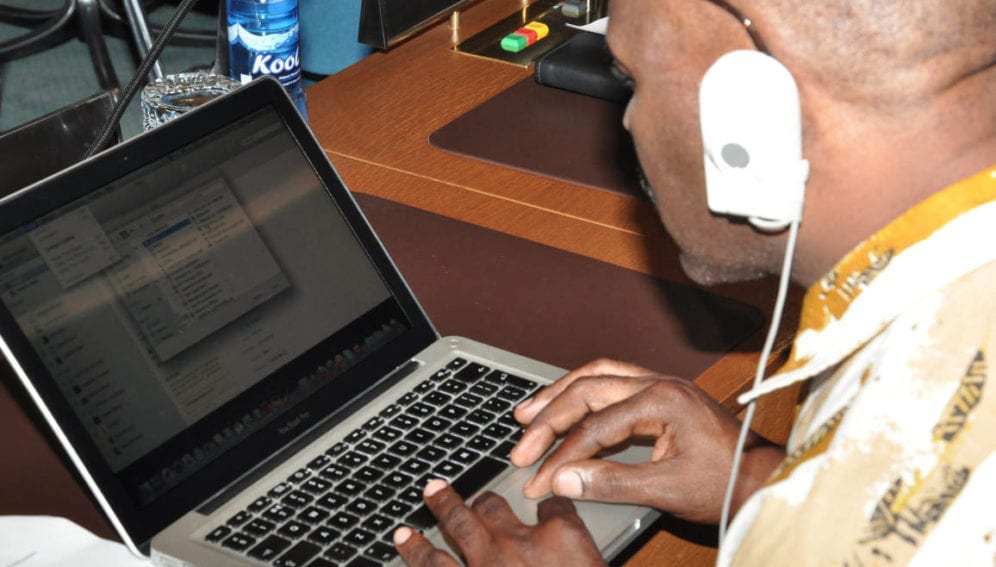By: Aamna Mohdin
Send to a friend
The details you provide on this page will not be used to send unsolicited email, and will not be sold to a 3rd party. See privacy policy.
The Facebook-led media and tech partnership Internet.org, which aims to get the developing world online, has been criticised for placing self-interest over fair and far-reaching internet access for the poor.
This month, Internet.org launched its app, which provides smartphone users with free access to selected, basic internet services, in Kenya. The app is already available in Tanzania and Zambia.
Although the app promises to deliver free internet access to millions of people who would not otherwise have it, several critics predict the initiative may fail to deliver equitable access. And some argue that national governments are better placed than private companies to improve broadband infrastructure.
In a New York Times article in August, technology commentator Evgeny Morozov dismissed the scheme as “venture humanitarianism” and a “gateway drug” that gives Facebook enormous influence over how people access various online services, including news, education and health information.
“The internet as a human right is more than just freedom of speech, it is also freedom to access all of the tools of that speech.”
Jen Schradie, University of California
Leo Mutuku, a data scientist at Kenyan tech organisation iHub Research, tells SciDev.Net that rolling out the app will give Internet.org power over what information people can access online.
“When you lower the costs of some internet services, such as online banking and employment services, the expectation is that this will entice more users to access the internet and propagate general access to information,” she says. “However, theoretically, it is also a filter for information, as priority is given to provision of specific access to specific sites.”
In short, Internet.org may reinforce monopolies, she says. For example, the Internet.org app gives users limited free access to services such as Wikipedia and Google search.
Mutuku says a better path to equitable broadband access might be government interventions. For example, Universal Service Funds, levies on telecom operators that are used to extend telecommunication services to all, are one possibility.
And several African countries including Botswana and Kenya have launched national broadband strategies. Mutuku says these could vastly increase internet access at the grassroots over the next few years and build broadband infrastructure throughout the region, without crowding out local service providers.
Steven A. Zyck, a research fellow at the Overseas Development Institute in London, United Kingdom, who specialises in the role of the private sector in humanitarian aid agrees that internet access would have limited impact on development if barriers such as the price of hardware are not addressed.
But he also argues that, for internet access to have a lasting impact on the world’s most vulnerable, internet providers should focus less on high-end apps and instead develop basic services such as online job sites.
“A lot of low-income countries are missing [such] simple services,” he says.
And because Internet.org’s app provides access to local health, education and employment services — such as the UNICEF online hub for Ebola-related information — Zyck says it is valuable. And he notes that there is “growing evidence that apps and text message-based awareness-raising activities are particularly effective in reaching out to young people in many countries”.
Yet Jen Schradie, a PhD student focusing on digital democracy at the University of California, Berkeley, United States, tells SciDev.Net that Internet.org promotes private ownership of digital infrastructure, which should be publicly available to everyone.
Schradie, who in August penned a widely read open letter to Facebook CEO Mark Zuckerberg, says: “The internet as a human right is more than just freedom of speech, it is also freedom to access all of the tools of that speech.
“Access to Facebook and participating in its black box algorithms that generate profits for the company are not human rights.”
Schradie describes Internet.org as a “Trojan horse”: although it looks like humanitarianism, it is actually expanding Facebook’s potential market.
SciDev.Net contacted Facebook for a response to the criticisms raised in this article. It did not respond to them individually, but pointed out that Internet.org’s ‘What people are saying’ page highlights some of the project’s potential positive impacts.
For instance, the page quotes UN Women executive director Phumzile Mlambo-Ngcuka as saying the app “will bring us that much closer to a world where all women — wherever they are form — will have access to the basic information and tools needed to succeed in the 21st century”.














